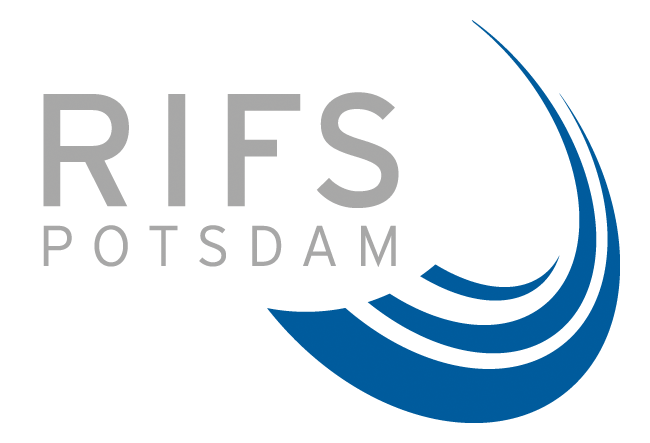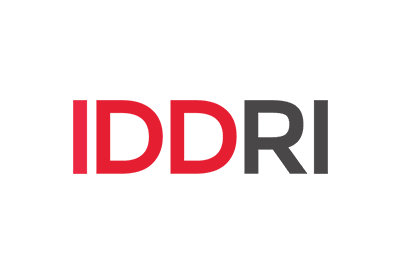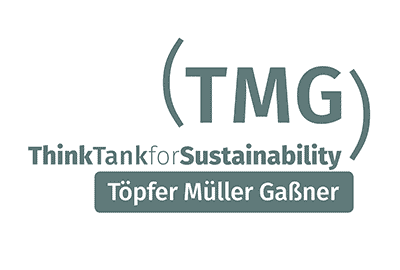The STRONG High Seas Advisory Board brings together senior experts and high-level decision makers from international and regional organisations, science and civil society. The members meet regularly to advise the STRONG High Seas project on key issues related to the conservation and sustainable use of the High Seas and the development of the project. The Advisory Board also provides strategic advice to the STRONG High Seas project with regard to the project’s two focal regions and to relevant global ocean governance processes.
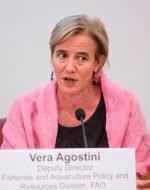
Dr. Vera Agostini is the Deputy Director of the Fisheries and Aquaculture Department at the United Nations, Food and Agriculture Organization (FAO), with a primary focus on providing oversight, strategic guidance and technical support to FAO’s Fisheries statistics and information team, Marine and Inland Fisheries Resource management team, the Fishing Operations and technology team. From 2007-2017 Vera was with The Nature Conservancy, initially as Senior Scientist with the Global Oceans Team, and more recently as Director of Conservation and Director of Climate Adaptation. Dr. Agostini is a fisheries scientist by training, who has held positions across three sectors (non-governmental, government, and academia/educational) providing technical and strategic leadership across a range of multi-disciplinary efforts around the globe. Her experience ranges from comprehensive ecosystem research to broad policy and planning. Areas of focus include ecosystem services in pelagic environments, ecosystem approaches to fisheries, marine spatial planning and protected area network design, biodiversity mainstreaming in the fisheries sector, ecosystem based climate adaptation and disaster risk management, social resilience and small scale fisheries.
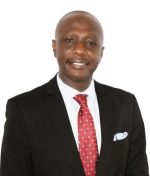
Dr. Kamal-Deen Ali (Captain Ghana Navy, Rtd) is the Executive Director of the Centre for Maritime Law and Security Africa. He was the Legal Director of Ghana Navy and retired in 2018 after 20 years of distinguished service. He has since 2003 been involved in ocean governance policy shaping and capacity building at national, regional and global levels. He is a Senior Fellow of the Australian National Centre for Ocean Resources and Security (ANCORS), an Associate of the Corbett Centre for Maritime Policy, United Kingdom, and an Associate of the Africa Security Dialogue and Research. He holds a PhD and a Master of Law (LL.M) from the International Maritime Law Institute, Malta and other academic qualifications.
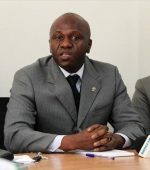
Abou Bamba is the Executive Secretary of the UN-Environment Convention for Co-operation in the Protection and Development of the Marine and Coastal Environment of the West, Central and Southern African Region (Abidjan Convention). He holds a Masters in Sciences from the University of Quebec, a degree in Sustainable Management of the Environment from the University of California at Berkeley and a certificate in Political Economy of the Environment from the World Bank Economic Development Institute. Abou Bamba has been a Technical Advisor for the World Bank in the framework of the preparation of National Environmental Action Plans and worked as a consultant for the Ford Foundation and Chemonics International. He was the Coordinator of the Network for Environment and Sustainable Development in Africa (NESDA), a regional NGO hosted by the African Development Bank, and coordinated the Global Environmental Outlook process for West and Central Africa.

Julian Barbière is head of Marine Policy and Regional Coordination Section at the Intergovernmental Oceanographic Commission (IOC) of UNESCO. Educated as an environmental scientist, he has approximately 20 years of experience at the international level in the field of ocean sustainability, ocean governance and the implementation of ecosystem-based management approaches at various geographical locations. He is the lead responsible for Sustainable Development and Ocean at the IOC Secretariat, and is known in and outside of the UN for his contribution to ocean ecosystem management. Working at the interface of science and policy, he has led a number of UN initiatives, such as the pre-conception phase of the UN Regular Process 2006-2009, the coordination of the inter-agency publication “Blueprint for Ocean Sustainability” (2012, with FAO, IMO, and UNDP), the development of international guidelines on Marine Spatial Planning, the development of the Agenda 2030 and its related SDG 14. He is currently implementing the SDG 14 strategy for the IOC and was instrumental in the proclamation of the UN Decade of Ocean Science for Sustainable Development at the end of 2017 for which he is the focal point at IOC.
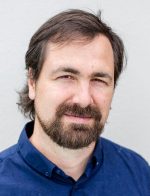
Alex Benkenstein is the Programme Head of the Governance of Africa’s Resources Programme at the South African Institute of International Affairs (SAIIA). His work in SAIIA has focused on a number of resource governance-related issues, particularly in the fields of fisheries, ocean governance, climate change and mining. Alex graduated from the University of Stellenbosch with a Master’s Degree in International Studies and subsequently completed an M.Phil (Programme Evaluation) at the University of Cape Town. Before joining SAIIA Alex was employed as a researcher for the South African consultancy Managing for Excellence and served as Head of Research for the NGO Regency Foundation Networx. He is part of the South African Working Group on the Blue Economy for the Indian Ocean Rim Association Academic Working Group.

Fredrik Haag is Head of the Office for the London Convention/Protocol and Ocean Affairs at the International Maritime Organization. He has a background in applied environmental research, focusing on marine and coastal zone management, and holds several postgraduate degrees; an MSc in Earth Sciences and a Licentiate of Philosophy (Phil. Lic.) in Environmental Impact Assessment from Uppsala University, Sweden, as well as a Master in Maritime Affairs from the World Maritime University. Fredrik joined IMO in 2006, and represents IMO in several UN wide processes, and has been deeply involved in matters related to the 2030 Agenda for Sustainable Development and the SDGs, Biodiversity in Areas Beyond National Jurisdiction (BBNJ), as well as the Joint Group of Experts on Scientific Aspects of Marine Environmental Protection (GESAMP). As head of the Office, his primary task is to support the implementation of the London Convention and Protocol on dumping of wastes and other matters at sea, but he is also involved in IMO’s work on PSSAs, marine litter, noise and ship-strikes. He has also contributed to work on GHG emissions from ships and Ballast Water Management.
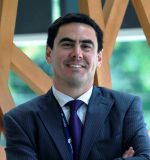
Osvaldo Urrutia is the Chairperson of the Commission of the South Pacific Regional Fisheries Management Organisation (SPRFMO). Before becoming Chairperson of the SPRFMO Commission, Mr. Urrutia successfully fulfilled the role of Chairperson of the SPRFMO Compliance and Technical Committee. He served for nearly a decade as legal and policy adviser for the Government of Chile in the area of international fisheries and Law of the Sea. He is also a lecturer at the Faculty of Law of the Pontificia Universidad Católica de Valparaíso (PUCV) in Valparaiso, Chile. Mr. Urrutia is currently based in Wellington, New Zealand.

Ambassador Méntor Villagómez, current Secretary General of the Permanent Commission for the South Pacific, is a career diplomat with the Ecuadorian Foreign Service for more than forty five years. He has a Doctor’s degree in Jurisprudence from the Pontifical Catholic University of Ecuador, a Master’s Degree in Business Management from the Institute of Business Development of Quito, as well as various Diplomas in international studies from The Hague International Law Academy, Georgetown University and University of Texas at Dallas. He is fluent in Spanish, English and French. He has been Ecuador’s Foreign Trade vice Minister and Chief Trade Negotiator. He has also served as Ambassador to the European Union, Belgium, Luxemburg, India, Bangladesh, Sri Lanka and Nepal. He is married with three children and four grandsons and lives in Guayaquil, Ecuador.

Dr. Lizette Voges was appointed as new Executive Secretary of the South East Atlantic Fisheries Organisation (SEAFO) in 2017. She holds a PhD in Zoology, obtained from the University of Cape Town. She has over 20 years of experience in the area of fisheries research. She worked as a Senior Fisheries Biologist at the Ministry of Fisheries and Marine Resources in Namibia and was subsequently appointed Coastal and Marine Biodiversity Coordinator of the National Biodiversity Program and Head of Information Management at the Fisheries Observer Agency in Namibia.
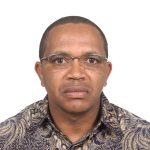
Dixon Waruinge, a Kenyan national, joined UN Environment in 2001 and has gained more than 20 years of experience in the management of Multilateral Environmental Agreements, as Head of the Secretariat of the Nairobi and Abidjan Convention and as Coordinator for the Nairobi Convention. He has worked for, and with governments, NGOs and research institutions on project design, implementation and coordination for many states of Africa, in the diverse fields of wildlife management, biodiversity assessment, monitoring and information management, community biodiversity conservation and environmental impact assessment. He has developed partnerships and cooperative agreements with global NGOs such as WWF and IUCN, Regional Economic Commissions such as the Indian Ocean Commission and research institutions, such as the Western Indian Ocean Marine Scientist Association. As Coordinator for the Nairobi Convention, he has guided the Contracting Parties in the preparation and adoption of several legal and policy instruments for coastal and ocean governance, including the revised Nairobi Convention and a new protocol on Land-based sources and activities.
